Your baby is now officially an embryo and is about the size of a poppy seed.
Please visit www.nhs.uk/conditions/pregnancy-and-baby/4-weeks-pregnant/ for more information.
Local Maternity and Neonatal System
View navigation
After the birth
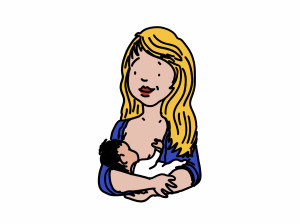
If this is the first time you are breastfeeding, it is important to get help and support on how to latch your baby to the breast correctly from the start.
If you have breastfed before, you will probably be confident about feeding this time around, but you should always ask the staff if you need help as babies can be very different.
A multilingual resource from Global Health Media on all aspects of breastfeeding is available here in a number of different languages.
Videos developed to support the HNY Best for You, Best for Baby - Breastfeeding Campaign can be accessed here .
It is recommended that babies are exclusively breastfed for at least the first six months. However, evidence shows that babies still benefit from having breastmilk for less time than this, and there are many benefits to feeding past six months too. The most important thing is to enjoy this special time with your baby.
There are a number of national and local organisations that will be able to advise, offer practical help and link you to other breastfeeding mums - please ask your midwife or health visitor for more information.
Start4Life Breastfeeding Resources - support and advice to pregnant women and new mothers to help them initiate and continue breastfeeding successfully.
National Breastfeeding Helpline - Now open 24/7 on 0300 100 0212, and can also access the web chat here
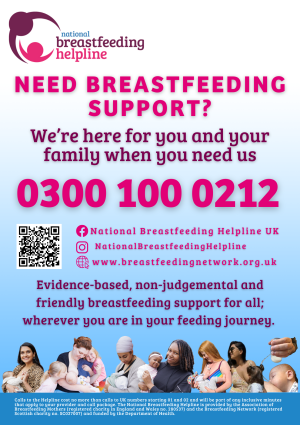
Breastfeeding Friend - For further support, try Breastfeeding Friend on Amazon Alexa/Google Home/Facebook Messenger.
Breastfeeding Network - offers independent, evidence-based information and support to help build awareness of breastfeeding to individuals and organisations and to support a mum in her choice to breastfeed.
Association of Breastfeeding Mothers (ABM) - a voluntary organisation founded in 1979 by mothers already experienced in breastfeeding counselling.
 East Yorkshire breastfeeding support resources including an extensive list of East Riding Children's Centres and the day and time of the dedicated support groups can be accessed on their website here .
East Yorkshire breastfeeding support resources including an extensive list of East Riding Children's Centres and the day and time of the dedicated support groups can be accessed on their website here .
North Lincolnshire Council weekly breastfeeding support meetings.
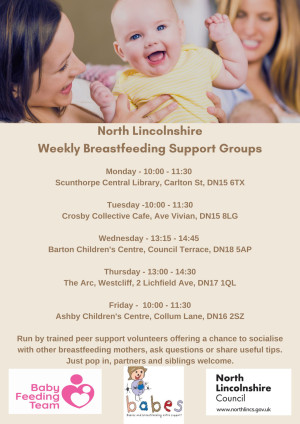
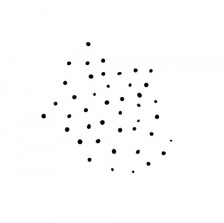
Your baby is now officially an embryo and is about the size of a poppy seed.
Please visit www.nhs.uk/conditions/pregnancy-and-baby/4-weeks-pregnant/ for more information.
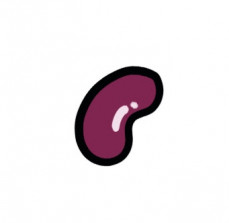
Your baby is now the size of a kidney bean and weighs 1g.
Please visit www.nhs.uk/conditions/pregnancy-and-baby/8-weeks-pregnant/ for more information.
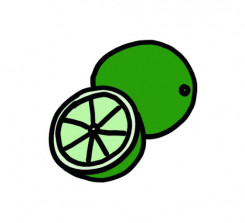
Welcome to the second trimester!
Your baby is about the size of a small lime and weighs approximately 14g.
You have hopefully seen your midwife for your 'booking in' appointment, if you have not yet seen a midwife please make an appointment quickly, so you can have all of your choices about screening tests explained and offered to you.
Please visit www.nhs.uk/conditions/pregnancy-and-baby/12-weeks-pregnant/ for more information. You can also link to the 'Pregnancy Journey' area here.
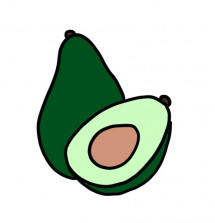
Your baby is about the size of an avocado and weighs approximately 100g.
Please visit www.nhs.uk/conditions/pregnancy-and-baby/16-weeks-pregnant/ for more information.

Your baby has grown in length and is now the length of a small banana and weighs approximately 300g. Around this time you will be offered your '20 week' scan, also known as the 'anatomy' or 'anomaly' scan.Click here for more information about screening.
This is a also a good time to talk and sing to your bump as your baby can now hear sounds. This is great way for you and your partner/family to bond with your baby.
Please visit www.nhs.uk/conditions/pregnancy-and-baby/20-weeks-pregnant/ for more information.
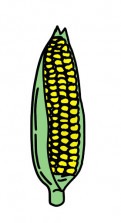
Your baby has grown again to the approximate length of an ear of sweetcorn and weighs about 600g.
Please visit www.nhs.uk/conditions/pregnancy-and-baby/24-weeks-pregnant/ for more information.
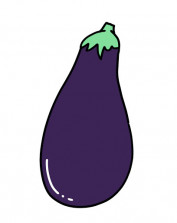
Welcome to the third trimester!
Your baby is now approximately the weight of an aubergine; about 1kg and approximately 37cm in length.
Please visit www.nhs.uk/conditions/pregnancy-and-baby/28-weeks-pregnant/ for more information.
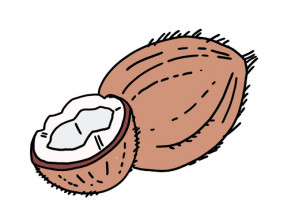
Your baby now weighs approximately the same as a coconut; around 1.5kg.
Please visit www.nhs.uk/conditions/pregnancy-and-baby/32-weeks-pregnant/ for more information.
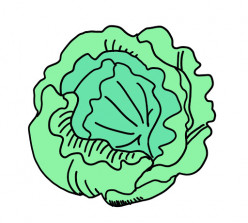
Your baby is now around the same size as a lettuce, approximately 47cm long and weighs around 2.6kg.
Please visit www.nhs.uk/conditions/pregnancy-and-baby/36-weeks-pregnant/ for more information.
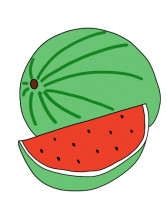
Your baby is now the weight of a small watermelon which is approximately 3.3kg and around 50cm in length.
Please visit www.nhs.uk/conditions/pregnancy-and-baby/40-weeks-pregnant/ for more information.